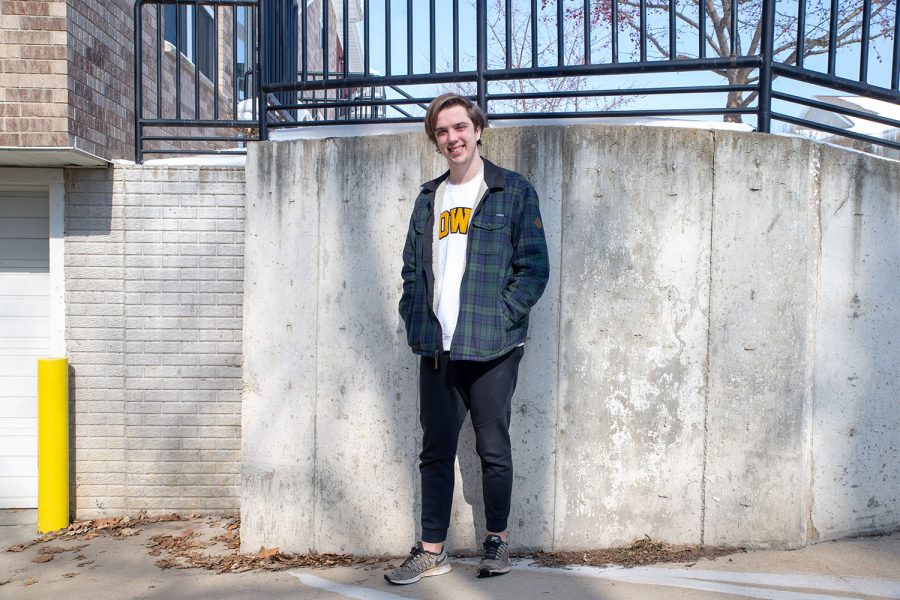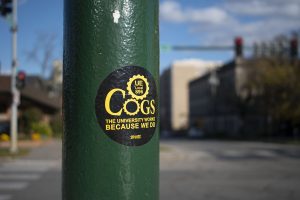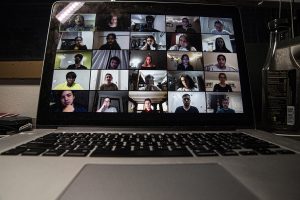University of Iowa law student receives kidney from his mother after kidney failure
When Austin Maas experienced kidney failure, many people stepped up to donate, including his mother. He received a kidney from his mother, Gina, who is a nurse.
Austin Maas poses for a portrait on Saturday, Feb. 20, 2021.
February 23, 2021
University of Iowa law student Austin Maas called his mother in September two years ago to tell her that he was going into kidney failure.
His mother, Gina Maas, told him he could have one of hers.
“You can have my kidney,” Gina said. “I only need one.”
When Austin first found out about his kidney failure, he said a multitude of donors stepped forward, from classmates to family members.
“It was shocking how many people signed up to be a donor for me,” Austin said. “It was very humbling to have that.”
Gina moved to Oregon to be a dialysis nurse in 2018 and has worked with people experiencing kidney failure. She said this made the whole process more challenging for her, knowing what her son could go through. Kidneys are about the size of a computer mouse, according to the Centers for Disease Control and Prevention, and they filter all the blood in the body every 30 minutes. They filter wastes, toxins, excess fluid and control blood pressure and stimulate red blood cell production. An estimated one in seven Americans have chronic kidney disease, the CDC reports, which happens when the kidneys can’t filter blood properly.
Gina said she was all but ready to donate as soon as she found out about Austin’s kidney failure, but when she got her tests back to see if she was a match, Gina was hit with bad news — her blood sugar levels were too high.
“Here I am, a nurse, his mom. Of course, I wasn’t living with him or near him,” Gina said. “It’s like — why couldn’t I have caught this before it got this bad? But things happen. We don’t know why, but they do.”
Living Donor Transplant Coordinator at UIHC Ciera Gibbs said blood sugar is important when looking for kidney donors, because if the levels are off, it could cause diabetes or other health problems for donors later in life.
“The donors are going into an elective procedure and coming out with one kidney,” Gibbs said. “When potential donors have either an elevated body mass index or some of their numbers indicate that they might have a higher risk of developing diabetes down the road, we want to identify that early on.”
Gina said doctors recommended that she cut all simple sugars out of her diet for three months, and she followed suit.
“I literally did not cheat once in three months, and it was very easy to do because my son’s life was at stake,” Gina said.
After the strict no-sugar diet, Gina said she was ready to donate. She flew to Iowa City and quarantined for 10 days upon arrival. She said the risk of traveling during the pandemic was well worth it for her son.
“Traveling to Iowa and figuring out that whole scenario was a little concerning, but on the other hand, I just knew this was all going to work and it would be OK,” Gina said.
The two underwent the procedure in July of 2020. After the surgery, both Austin and Gina said they recovered well and are in good health.
“The hospital handled everything so well,” Austin said. “Everyone there at the hospital is a professional, and they want to help you as much as they can. I had the best experience at the hospital and the law school. Everyone at the university has been great throughout the whole process.”
While the experience was a tough one, Gina said she hopes her story shows people that being a donor is important, especially when it comes to loved ones.
“I did it, and hopefully it inspires other people to do it as well,” Gina said.






